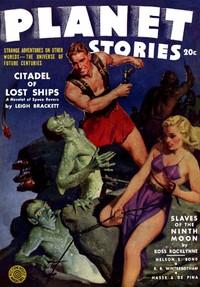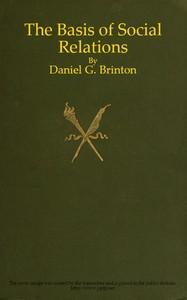Read this ebook for free! No credit card needed, absolutely nothing to pay.
Words: 63119 in 11 pages
This is an ebook sharing website. You can read the uploaded ebooks for free here. No credit cards needed, nothing to pay. If you want to own a digital copy of the ebook, or want to read offline with your favorite ebook-reader, then you can choose to buy and download the ebook.
STORIES OF GEORGIA
PREFACE
In preparing the pages that follow, the writer has had in view the desirability of familiarizing the youth of Georgia with the salient facts of the State's history in a way that shall make the further study of that history a delight instead of a task. The ground has been gone over before by various writers, but the narratives that are here retold, and the characterizations that are here attempted, have not been brought together heretofore. They lie wide apart in volumes that are little known and out of print.
The stories and the characterizations have been grouped together so as to form a series of connecting links in the rise and progress of Georgia; yet it must not be forgotten that these links are themselves connected with facts and events in the State's development that are quite as interesting, and of as far-reaching importance, as those that have been narrated here. Some such suggestion as this, it is hoped, will cross the minds of young students, and lead them to investigate for themselves the interesting intervals that lie between.
It is unfortunately true that there is no history of Georgia in which the dry bones of facts have been clothed with the flesh and blood of popular narrative. Colonel Charles C. Jones saw what was needed, and entered upon the task of writing the history of the State with characteristic enthusiasm. He had not proceeded far, however, when the fact dawned upon his mind that such a work as he contemplated must be for the most part a labor of love. He felt the influence of cold neglect from every source that might have been expected to afford him aid and encouragement. He was almost compelled to confine himself to a bare recital of facts, for he had reason to know that, at the end of his task, public inappreciation was awaiting him.
And yet it seems to the present writer that every person interested in the growth and development of the republic should turn with eager attention to a narrative embodying the events that have marked the progress of Georgia. It was in this State that some of the most surprising and spectacular scenes of the Revolution took place. In one corner of Georgia those who were fighting for the independence of the republic made their last desperate stand; and if they had surrendered to the odds that faced them, the battle of King's Mountain would never have been fought, Greene's southern campaign would have been crippled, and the struggle for liberty in the south would have ended in smoke.
It is to illustrate the larger events that these stories have been written; and while some of them may seem far away from this point of view, they all have one common purpose and tend to one common end.
STORIES OF GEORGIA.
A SEARCH FOR TREASURE.
So far as written records tell us, Hernando de Soto and his companions in arms were the first white men to enter and explore the territory now known on the map as the State of Georgia. Tradition has small voice in the matter, but such as it has tells another story. There are hints that other white men ventured into this territory before De Soto and his men beheld it. General Oglethorpe, when he came to Georgia with his gentle colony, which had been tamed and sobered by misfortune and ill luck, was firmly of the opinion that Sir Walter Raleigh, the famous soldier, sailor, and scholar, had been there before him. So believing, the founder of the Georgian Colony carried with him Sir Walter's diary. He was confirmed in his opinion by a tradition, among the Indians of the Yamacraw tribe, that Raleigh had landed where Savannah now stands. There are also traditions in regard to the visits of other white men to Georgia. These traditions may be true, or they may be the results of dreams, but it is certain that De Soto and his picked company of Spaniards were the first to march through the territory that is now Georgia. The De Soto expedition was made up of the flower of Spanish chivalry,--men Used to war, and fond of adventure. Some of them were soldiers, anxious to win fame by feats of arms in a new land; some were missionaries, professing an anxiety for the souls of such heathen as they might encounter, but even these men were not unfamiliar with the use of the sword; some were physicians, as ready to kill as to heal; some were botanists, who knew as much about the rapier and the poniard as they did about the stamens, pistils, and petals of the flowers; and some were reporters, men selected to write the history of the expedition. As it turned out, these reporters were entirely faithful to their trust They told all that happened with a fidelity that leaves nothing to be desired. The record they have left shows that the expedition was bent on finding gold and other treasures.
On the 30th of May, 1539, De Soto's expedition landed at Tampa Bay, Fla., and his men pitched their tents on the beach. The army was not a large one; but it was made up of chosen men, who were used to the dangers of war, and who, as stated before, were fond of adventure. There was but one gray head in the expedition: therefore, though the army was a small one, it was the most enthusiastic and warlike array that had ever been seen in the New World. The soldiers wore rich armor, and the cavalry rode gayly caparisoned horses. The army was accompanied by slaves and mules to bear the burdens. It had artillery and other weapons of war; handcuffs, neck collars, and chains for prisoners; crucibles for refining gold; bloodhounds, greyhounds, and a drove of hogs.
For nearly a year the little army of De Soto wandered about in Florida, ransacking the burying grounds of the Indians in search of treasures, and committing such other depredations as were common to the civilization of that age. When inquiries were made for gold, the Indians always pointed toward the north; and, following these hints, the expedition pursued its way through Florida, wandering about in the swamps and slashes, but always held together by the enthusiasm of the men and their hopes of securing rich spoils.
Free books android app tbrJar TBR JAR Read Free books online gutenberg
More posts by @FreeBooks

: Trouble on Tycho by Bond Nelson S Walker Illustrator - Science fiction; Short stories; Moon Fiction; Human-alien encounters Fiction; Musicians Fiction


: The Basis of Social Relations: A Study in Ethnic Psychology by Brinton Daniel G Daniel Garrison Farrand Livingston Editor - Sociology; Ethnopsychology








